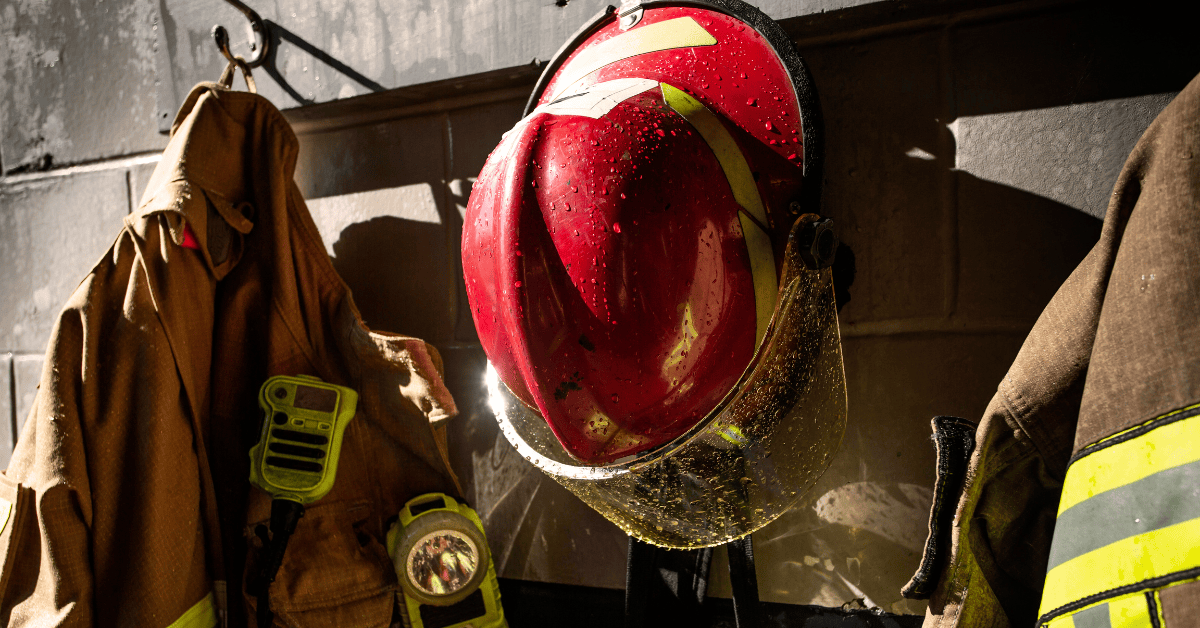Firefighters, like others who serve alongside colleagues in hazardous professions, depend heavily on the strong bonds of trust that develop over the years spent in the profession. Your fellow firefighters are like family in a way that’s difficult to explain to someone who has never had the experience of working in a similar situation.
But paradoxically, this can put a particular strain on firefighters who are entering the last few years before retirement—and on their families, as well. When so much of your life has been spent in the company of others who “get it,” the prospect of severing those ties and entering a completely new phase of life can seem pretty intimidating. Many retired firefighters have observed that getting into the career was the easy part: departing it for retirement seems a lot tougher. And too often, there aren’t many resources available to help retiring firefighters with the transition.
There are some steps that firefighters and their spouses should take, ideally starting about five years prior to retirement, that can help ease the transition and help the retiree feel less like a green rookie upon moving into their “next act.”
1. Make a plan
As with most important aspects of life, a successful, satisfying retirement involves planning. Take some time to think about the timing, the emotional aspects, and the financial infrastructure you’ll need when you leave the firehouse.
2. Talk it over
Remember that your spouse and other immediate family members are going to be the primary players on your “retirement team.” You need to be open with them about what you’re thinking and feeling, about your expectations for retirement, about the concerns you’re facing. And at the same time, you need to be open to listening to them share their thoughts, feelings, and opinions.
3. Learn from your retired colleagues
Spend some quality time with retired firefighters. Find out what worked for them and also what didn’t work. You don’t have to re-invent the wheel, and you can learn a lot and be better prepared by finding out about others’ experiences.
4. Think about what you want to do
What are your passions? What do you and your spouse enjoy doing together? Have you always wanted to travel? Is there an organization that is meaningful to you that could use a volunteer? Do you want to start a small side business? The years prior to retirement are the right time to consider how you want to spend your days, once you’re not pulling shifts at the station.
5. Expand your circle
As we’ve already discussed, your comrades at the firehouse will always be some of the most special people in your life. But many of them will still be working after you retire, and you won’t be able to spend the same amount of time together. Start cultivating and deepening friendships outside the profession. One of the most accurate predictors of a long life is the quality and number of relationships you have, even if many of them are more casual. It matters to your happiness and satisfaction that you occasionally exchange a few words with the people who live next door, or the person who delivers your mail, or the checkout clerk at the neighborhood grocery stores. Train yourself to be aware of the “non-firefighter” people in your life; it will make your transition to retirement much more satisfying.
6. Get good financial advice
Retirement comes with many decisions: the best way to take advantage of your pension; whether to participate in a deferred retirement option plan (DROP); how to invest the assets in your 457 plan or other deferred compensation arrangements; whether you need additional life insurance; and many others. A professional, fiduciary financial advisor who has your best interest foremost can help guide you through the maze of options to arrive at a solution that works best in the particular circumstances of you and your family. This can also relieve a lot of the stress that goes with transitioning to retirement.
Mathis Public Safety Retirement is a fiduciary advisor specializing in helping firefighters and other public safety professionals make smart decisions for retirement and other important financial events. To learn more, click here to read our helpful report, “Putting Your Affairs in Order: A Checklist for First Responders.”










